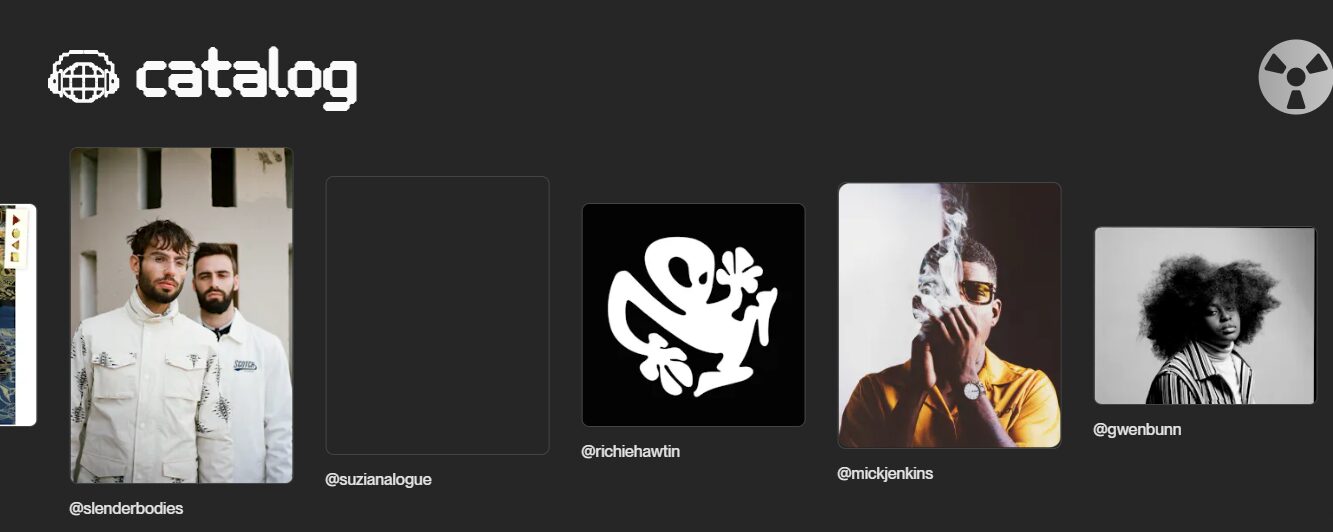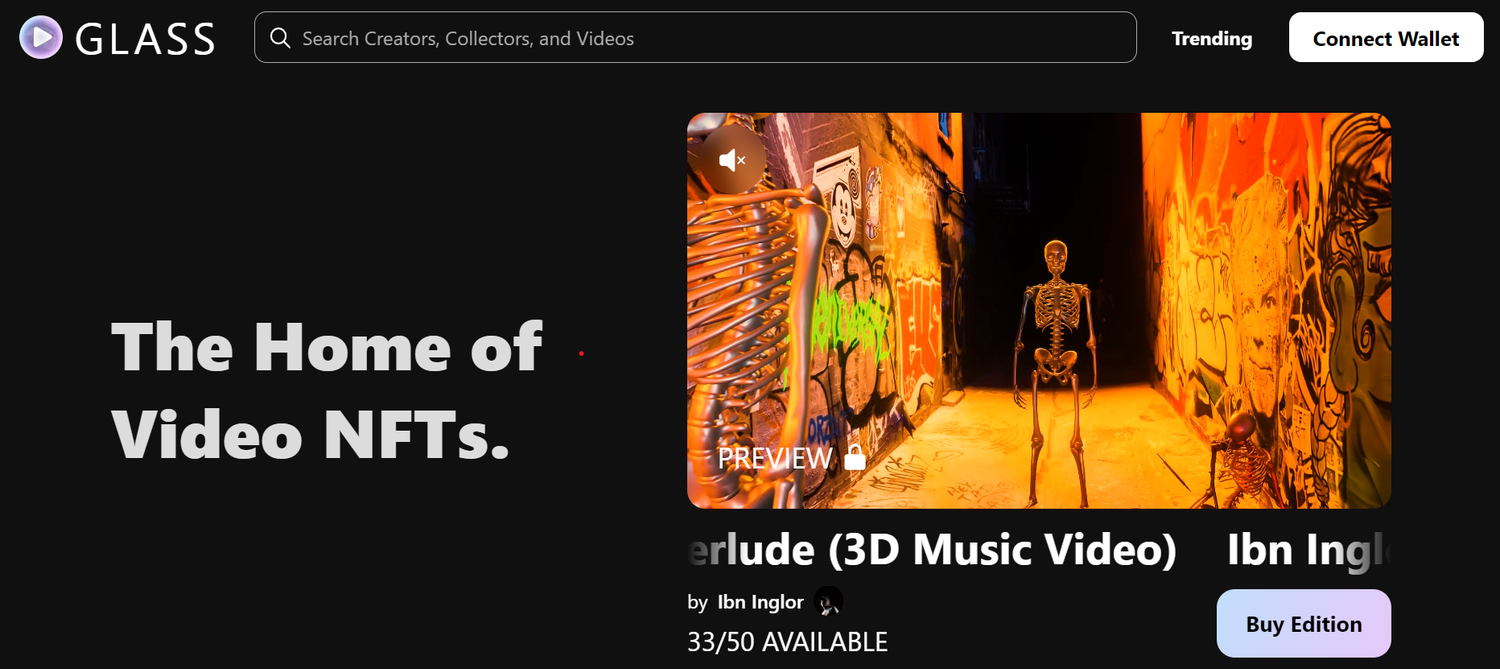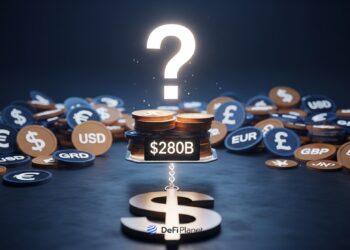Last updated on July 29th, 2024 at 01:03 pm
Thanks to Web3 technologies, the music industry is experiencing a huge transformation. These new tools are not only changing how music is shared and listened to but also giving artists and producers more control over their work. Before now, musicians struggled with low income, lack of transparency, and little control over how their music was shared or sold. Big streaming platforms take most of the money, leaving artists with very little.
Web3 music platforms are fixing these problems by using blockchain technology to create decentralized systems where musicians can avoid traditional middlemen, get fairer pay, and connect more directly with their fans. Fans can now enjoy exclusive perks and benefits through music NFTs and other cool features, not just access to growing databases of music.
In this article, we’ll discuss the best Web3 platforms for music artists and producers. Our goal is to guide musicians through these exciting new technologies and help them succeed in the changing music industry. We’ll highlight the key features and benefits to show how these platforms are making the music world better.
Understanding Web3 in Music
Web3 is the third generation of internet technologies, focusing on decentralization, blockchain, and giving more power to users. In the music industry, Web3 is changing how music is made, shared, and sold. Unlike the old system where big companies controlled most of the industry, Web3 lets artists have more control over their work and how it’s distributed.
So, what are the benefits of Web3 technologies for musicians?
-
Decentralization
Web3 platforms cut out the middlemen, letting musicians connect directly with their fans. This reduces the control big companies have over music distribution and gives artists more independence.
-
Transparency
Blockchain technology makes all transactions clear and unchangeable. This means artists can see their earnings in real-time and understand exactly how their music is being used and making money.
-
New Revenue Streams
Web3 offers new ways for artists to make money, like selling music NFTs. These are unique digital assets that fans can buy, sell, and trade. This creates new income opportunities beyond just traditional sales and streaming.
Top Web3 Platforms for Music Artists and Producers
We’ve compiled a list of the most exciting Web3 music platforms currently dominating the charts:
- Sound.xyz
- Audius
- Catalog
- Glass.xyz
- Royal
1. Sound.xyz
Sound.xyz is a Web3 platform designed to empower music artists using blockchain technology. It enables artists to directly stream their music to fans while gaining more control over their distribution.
Musicians on Sound.xyz can list their songs as NFTs, creating unique digital assets that fans can buy. It opens up new revenue streams for artists by offering exclusive content through NFT sales.
Sound.xyz employs smart contracts to automate royalty payments, ensuring that artists are paid promptly and fairly. The platform also supports engagement between artists and their audiences through NFTs and other digital assets.
Unlike many other marketplaces, Sound.xyz operates on a free ecosystem and does not charge any fees for listing or selling music NFTs. This approach aims to facilitate seamless NFT trading within its platform, supporting artists in reaching broader audiences and maximizing their earnings.
Notably, renowned artists like Snoop Dogg, Tayla Parx, and Bobby Shmurda use Sound.xyz to share their music directly with fans through unique digital assets. They create music NFTs, offering fans exclusive access to special editions of their work and opening up new ways to earn money.
To become a creator on Sound.xyz, artists can sign up on the platform, navigate to “For Artists” by clicking on their avatar in the top-right corner, and fill out the required fields. Linking your Instagram is necessary for the application process, and using MetaMask as your artist wallet is recommended.
2. Audius

Audius, founded in 2018 by Forrest Browning and Roneil Rumburg, is a music streaming service that uses blockchain to give artists more control over their work by connecting them directly with their fans.
Artists can upload their music directly to Audius without middlemen and keep full ownership and control. They decide whether to offer their music for free or charge for exclusive content.
Audius also works with NFT platforms, letting artists sell unique digital assets and create new ways to make money. It uses blockchain tech to ensure royalty payments are transparent and direct, so artists can see their earnings in real-time.
Smart contracts on Audius automate royalty splits and enforce contracts, cutting down on admin work and disputes. Its community tools also help artists connect directly with fans and build a loyal following.
Audius doesn’t take a cut of sales earnings. Instead, artists get 90% of sales in AUDIO, the platform’s cryptocurrency, with the other 10% going to network investors. This way, most of the revenue goes straight to the artists, empowering them financially and creatively.
Sign up as a creator on Audius at audius.co/signup using your email and password. Link your verified Twitter or Instagram for instant profile completion or fill out your profile manually. Follow artists, explore music, upload a cover photo, link socials, and add a description to complete your profile.
3. Catalog

Catalog is an NFT marketplace for the music industry. It’s a platform designed to empower artists by facilitating direct interaction with fans and for creating, discovering, using, and trading audio NFTs.
On Catalog, artists receive 100% of their sales and a share of every resale without any platform fees. They can set their own prices independently, avoiding the need for publishers or costly agent fees, and retain full copyright ownership of their music.
For fans, Catalog ensures authenticity through a rigorous verification process that eliminates copyright infringements and piracy. This guarantees that the music purchased is genuinely from the artist, not a stolen copy.
Catalog utilizes wallet sign-in, eliminating the need for emails or passwords. Artists on Catalog can set their creator fees and sale prices to determine the value of their work. Fans can bid using ERC20 tokens like $AUDIO or $USDC, adding “slices” to their offers. Artists have the flexibility to accept bids at any time, considering factors beyond immediate financial gains, such as the buyer’s reputation.
4. Glass.xyz

Glass.xyz is a decentralized video platform where musicians can list their videos for NFT sales. Artists can upload videos of any length, including high resolutions like 4K and 5K, and monetize them directly through NFT sales.
Creators can sell their NFTs individually or as collections, with the option to auction them using the one-of-one option. After the auction, 90% of earnings on Ethereum or 97.5% on Solana are directly transferred to the creator’s wallet, while the remaining funds support Glass.xyz’s ongoing development and marketing efforts. The platform ensures transparent and direct payment channels for the royalties and uses smart contracts to automate royalty splits and enforce contract terms.
NYC rappers like Hass Irv and Smooky Margielaa used Glass.xyz to showcase their music as NFTs and connect with fans. Their stories show how artists can thrive in decentralized spaces and set new trends in the music world.
Hass Irv used the platform to reach a global audience by turning his music into NFTs, and he earned fair payments through automated royalty distributions for each sale. Meanwhile, Smooky Margielaa launched special music video collections through unique auctions, attracting bids and earning direct profits.
5. Royal

Royal, founded in 2021 in Austin, Texas, by JD Ross and DJ/producer Justin “3LAU” Blau, is an NFT marketplace transforming the music industry. It allows musicians to sell fractional ownership of their songs as NFTs, directly engaging with their audience. By cutting out intermediaries, Royal ensures fair and transparent royalty distribution, with artists receiving earnings directly from NFT sales.
Using smart contracts, Royal automates royalty payments according to agreed terms, ensuring artists are paid promptly. The platform encourages fan involvement by allowing them to invest in their favourite songs through fractional ownership of NFTs.
Royal introduces a novel concept where fans can invest in music as limited digital assets (LDAs), earning streaming royalties and exclusive benefits like concert tickets and merchandise curated by the artists themselves.
The Future of Blockchain in the Music Industry
As blockchain technology continues to mature, its impact on the music world is expected to grow. Based on current trends, the technology will further enhance transparency in royalty payments and rights management. Artists will be able to monitor their music’s consumption and monetization in real-time, leading to improved tracking and distribution of royalties. This increased transparency will empower artists with greater control over their financial future in the industry.
Artists would be to retain a larger share of their earnings and maintain greater ownership of their creative works. This shift could significantly reduce dependence on major labels, potentially leading to increased artistic innovation and diversity within the industry. The decentralized nature of blockchain may create a more level playing field, allowing a wider range of artists to thrive.
Another frontier ripe for exploration is the integration of blockchain with virtual worlds and metaverse platforms. As the lines between physical and digital experiences continue to blur, the music industry may see a transformation in how concerts and fan interactions are conducted, potentially revolutionizing the live music experience. Artists will have the opportunity to host virtual concerts, sell digital merchandise, and engage with fans in novel ways. These developments are likely to expand artists’ global reach and create new revenue streams, and blockchain would be the underlying tech powering this shift.
These advancements collectively promise to reshape the music industry landscape, potentially leading to a more artist-centric and fan-engaged industry, the long-promised dream of the sector.
Disclaimer: This article is intended solely for informational purposes and should not be considered trading or investment advice. Nothing herein should be construed as financial, legal, or tax advice. Trading or investing in cryptocurrencies carries a considerable risk of financial loss. Always conduct due diligence.
If you would like to read more articles (news reports, market analyses) like this, visit DeFi Planet and follow us on Twitter, LinkedIn, Facebook, Instagram, and CoinMarketCap Community.
“Take control of your crypto portfolio with MARKETS PRO, DeFi Planet’s suite of analytics tools.”





















